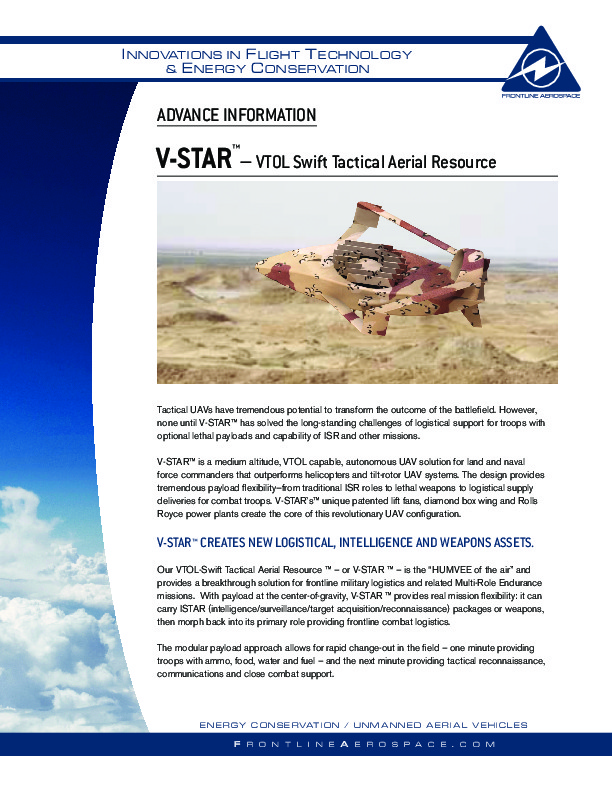VTOL-Swift Tactical Aerial Resource
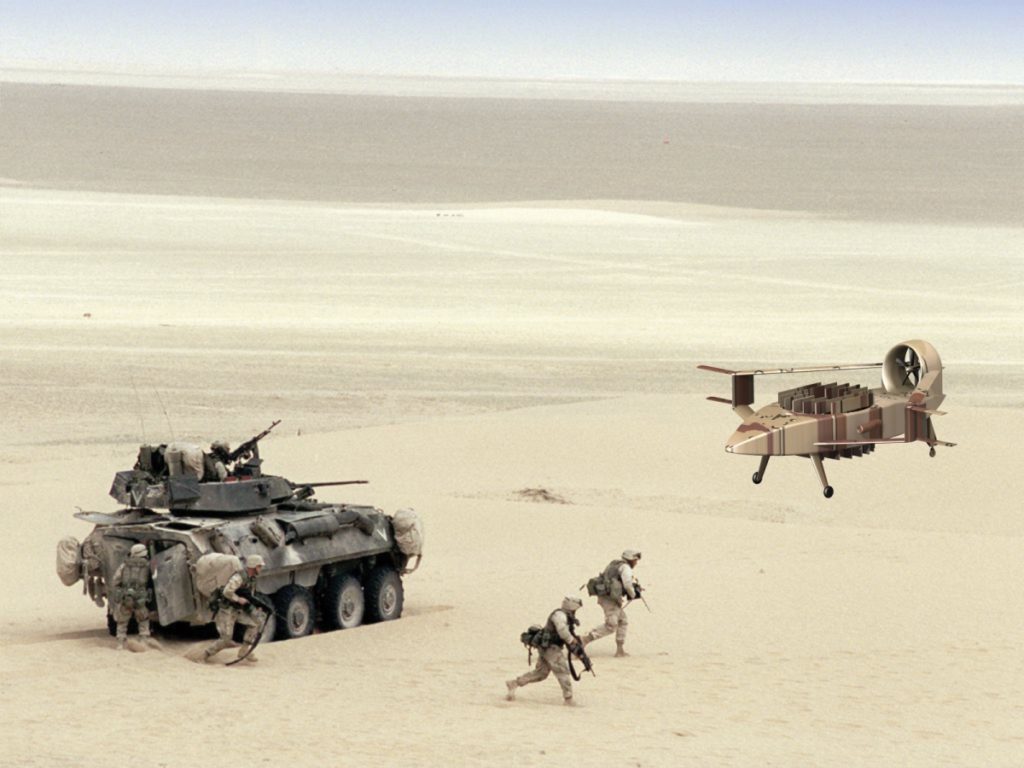
Tactical UAVs have tremendous potential to transform outcomes on the battlefield. But none until V-STAR™ has solved the longstanding challenges of providing rapid, flexible logistical support for troops in the field, while also giving commanders optional payloads for a wide range of specialized missions. Our VTOL-Swift Tactical Aerial Resource – or V-STAR™ – is the “HUMVEE of the air” and provides a breakthrough solution for front-line military logistics and related Multi-Role Endurance missions. With modular payload at the center-of-gravity, V-STAR™ provides real mission flexibility: it can carry ISTAR (intelligence / surveillance / target acquisition / reconnaissance) packages or weapons, then morph in minutes back to its primary role of providing front-line combat logistics. V-STAR™ is a unique unmanned aircraft system, combining a creative box-wing aerodynamic design with revolutionary propulsion improvements into a platform that stands alone in its ability to accomplish such missions. The V-STAR™ drone incorporates the following enabling technologies and capabilities:
- V-STAR™ is a VTOL platform that uses an enclosed ducted fan for lift during takeoff. This fan duct is closed for forward flight.
- Because its unique box-wing configuration provides lift during forward flight, it can travel to mission areas at up to three times the speed of a helicopter, with the efficiency of an airplane, thus increasing flexibility and operating radius.
- The rotor-free design results in a significant reduction in sound levels, a key to platform and personnel survivability. It also simplifies operations and enhances safety, by reducing the amount of clear space required for landing.
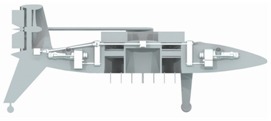
- The vehicle’s unique modular payload bay, located at the center of mass, allows for rapid change-out in the field––one minute providing ISR support, the next minute providing close combat support, logistical support, communications, or casualty evacuation as needed.
- V-STAR’s multi-engine design provides redundancy for powered flight, and operation of electrical components. V-STAR’s fixed wing flight only requires a single engine, greatly enhancing efficiency over comparable rotary winged platforms.
In brief, V-STAR offers superior speed, rate of climb, reliability, endurance, and payload and mission flexibility, compared to other UAVs. For the first time, here is a UAV that truly delivers key capabilities that military forces are looking for now and will demand in the future. V-STAR provides operators with a single platform that:
- Conducts VTOL flight operations
- Operates 2-3 times faster than helicopters – cruise at up to 400 knots
- Provides tremendous payload and mission flexibility (logistical, lethal and ISR–intelligence, surveillance and reconnaissance)
- Delivers leading edge specific fuel consumption (SFC) improvements with our MicroFire recuperator and IsoCool engine technologies
- Employs kneeling landing gear, allowing greater landing zone flexibility
- Eliminates exposed blades, using enclosed ducted fans for efficiency and safety
- Substantially improves noise stealth over helicopters
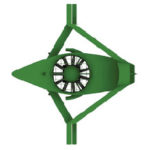
All this is accomplished without the need for technological breakthroughs: these are mature technologies integrated in a creative new way, thereby lowering costs for development, acquisition and deployment. Frontline Aerospace, Inc.’s patented V-STAR integrates advanced ducted-fan lift technology with proven and reliable Rolls-Royce Model 250 turboshaft engines to maximize the utility of the UAV at low unit and maintenance costs.
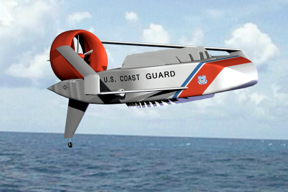
Frontline Aerospace has a powerful team of people specializing in advanced systems engineering, digital simulations, aircraft conceptual design, program management, and military concept of operations (CONOPS). We are well positioned to present a credible UAV solution for a wide range of specialized military and non-military missions including search-and-rescue, urban reconnaissance and border security.
V-STAR Developmental Milestones
- Conceptual Design – October 2007
- Water Tunnel Testing – January 2008
- Wind Tunnel Testing – Naval Research Labs – April 2008
- V-STAR Cargo 6,500 pound TOGW design for Office of Naval Research – February 2009
- V-STAR design patent granted – April 2009
- ¼ scale design – June 2009
- ¼ scale prototype – July 2009
- Flight testing – August 2009
- Wing extensions – October 2009
- Redesigned ducted pusher fan – March 2010
- Flight testing – June 2010
- Medium Range Maritime UAS RFP response – October 2011
- V-STAR utility patent issues – March 2012
Related Video
Related Downloads
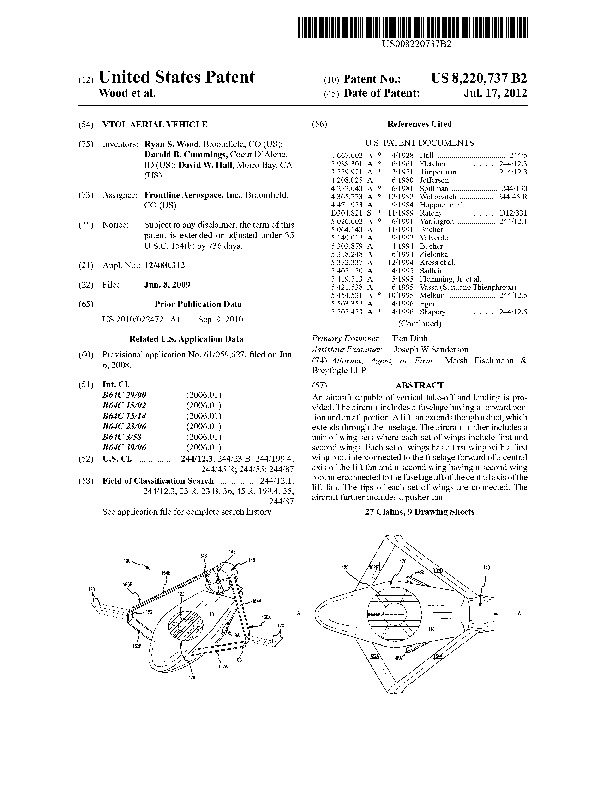
V-STAR Issued Patent 598.74 KB 9 downloads
Abstract: An aircraft capable of vertical take-off and landing is provided. The...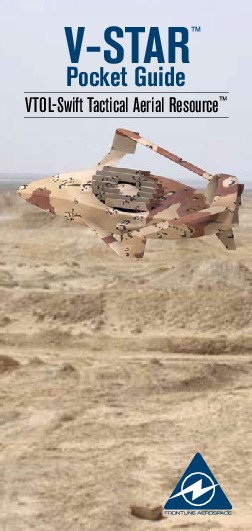
V-STAR™ Pocket Guide 1.23 MB 11 downloads
Abstract: Tactical UAVs have tremendous potential to transform the outcome on the...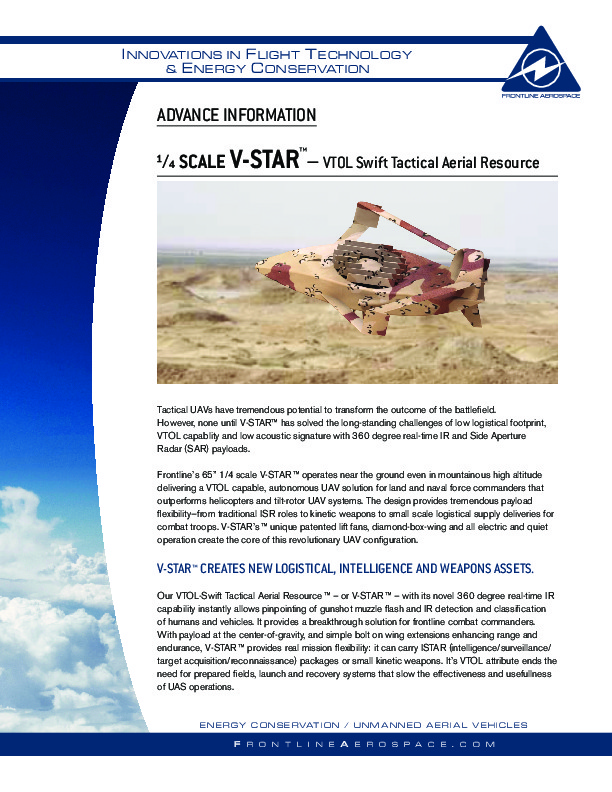
V-STAR™ 1/4-scale Datasheet 4.33 MB 12 downloads
Abstract: Frontline’s 65” 1/4 scale V-STAR ™ operates near the ground even...